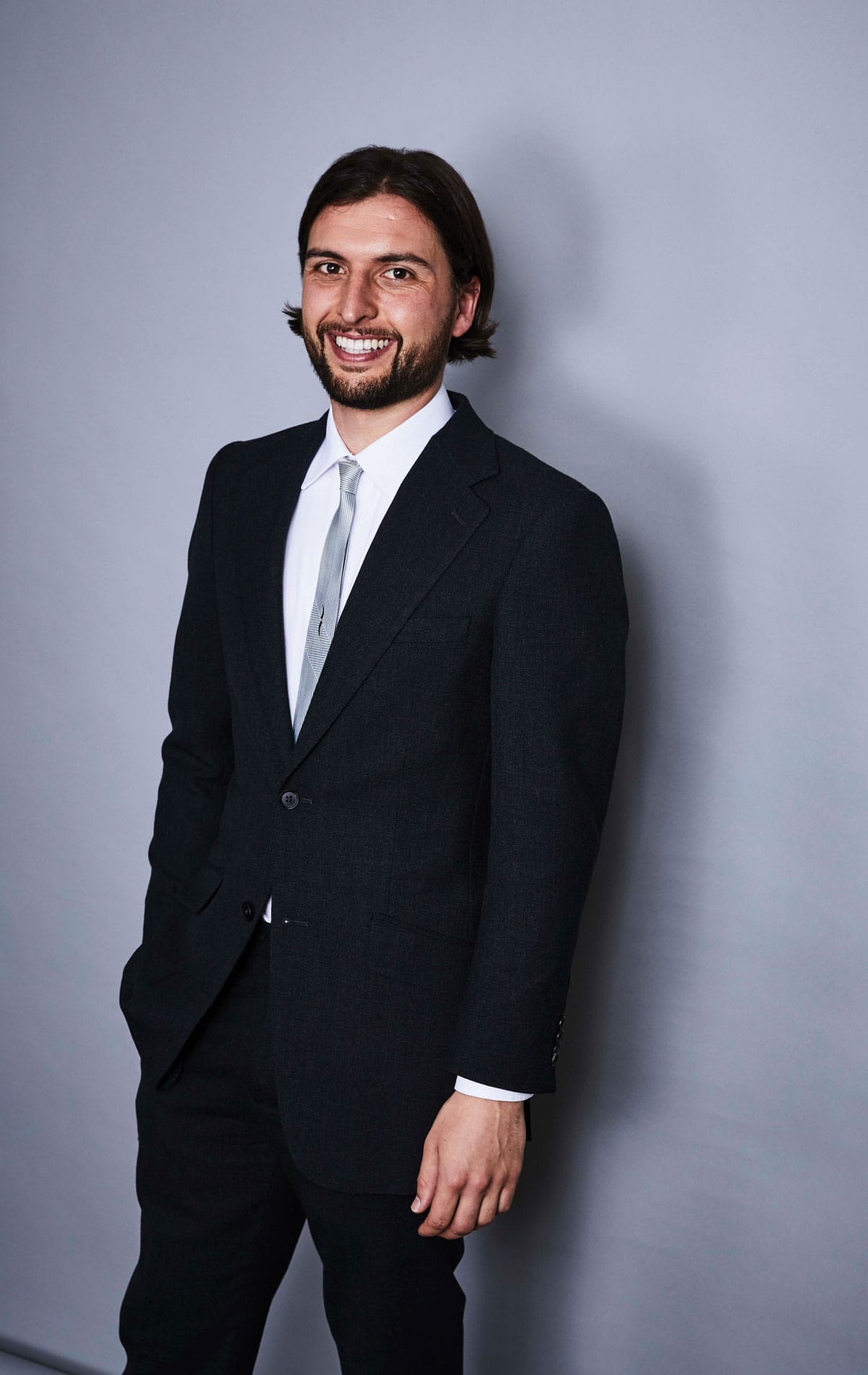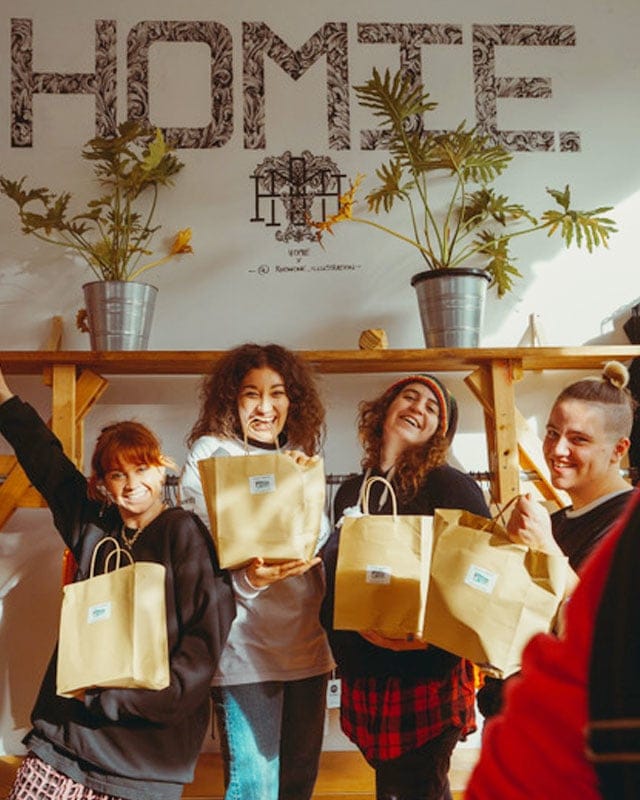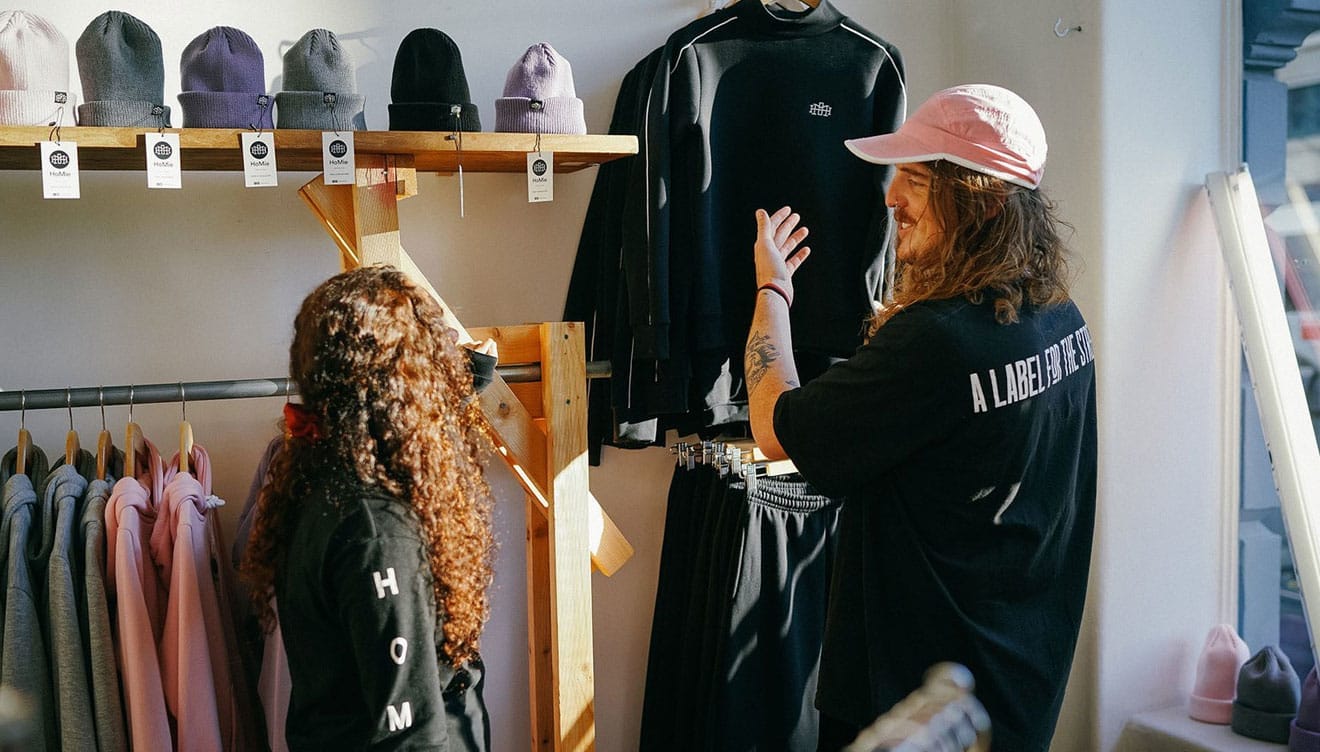
An altruistic spirit and entrepreneurial instinct have combined in Dr Robert Gillies OAM to create a one-man ideas laboratory for how to make the world a better place.
At just 29, he’s co-founded five charities, been named Young Victorian of the Year, been awarded an Order of Australia Medal (among an impressive suite of awards ), and earned Monash University degrees in medicine and philosophy.
"The gap we identified was that a lot of charities give second-hand clothes away, which is not exactly dignified for the recipients."
Now studying to be a psychiatrist, he helped reimagine the philanthropy sphere with the 2015 launch of HoMie, a social enterprise streetwear store, when he was still an undergraduate. The name stands for Homelessness Of Melbourne Incorporated Enterprise, and the fashion retailer invites people experiencing homelessness to shop for free and select their own new clothing.
“The gap we identified was that a lot of charities give second-hand clothes away, which is not exactly dignified for the recipients,” says Gillies. “Everyone likes the experience of shopping for something new that fits properly and that they actually want.”
As well as selling clothes with credibility for a younger generation – monogrammed hoodies, T-shirts and beanies – the charity holds monthly VIP shopping events in which the store is closed to the public, and particular service providers are invited to bring in their clients to choose some clothes, eat a hot meal, and spruce up with a haircut.
READ: The COVID-19 pandemic opens the door to solving the homelessness problem
Meanwhile, the HoMie Pathway Alliance program aims to permanently change the lives of people experiencing homelessness by taking 10 interns a year for paid work in the retail store. The intensive program is tailored to the specific needs of each person, aims to break negative cycles, and get participants job-ready – and it’s already had some noteworthy successes.
“One of our clients had been struggling with addiction for a long time. Her boyfriend had recently died of an overdose, and she had lost herself socially to the point she would barely speak. By the end of the program, though, she was a different person. She regained her confidence, and was able to turn her life around and go out and find employment,” Gillies says.
HoMie emerged from a Facebook site called Homeless of Melbourne that Gillies began with school friends to document the people living on the city’s streets. “I’ve always been a people person,” he says. “Sitting and talking with someone you’d initially think you have little in common with can be an enlightening experience; it’s usually amazing how much you actually do share.”
People person
While ethical streetwear and psychiatry might seem like unconnected fields, it doesn’t take much digging to find the subterranean links between the two. Gillies’ grandmother suffered from schizophrenia and spent time at the now-closed Larundel Mental Asylum in Bundoora in the 1950s.
“I never met my grandmother, but she was a backdrop to our family life in many ways. Mental illness is a part of my family’s story. It’s never been something we shied away from talking about,” says Gillies. “Even as a kid I’ve enjoyed talking to people, and helping people with mental difficulties and challenges. I’ve just always been someone who loves interacting with and understanding other people, and curious about human behaviour.”
Delve into Gillies’ childhood and you’ll also find the seeds of a true entrepreneur. In school, he sold lollies to other students before upscaling the slightly nefarious enterprise to pizza. “I’d order Pizza Hut at lunchtime and sell slices for an inflated price,” he says. “The school didn’t like it too much, so I donated the money to World Vision. From a young age there’s been something about business I really love. Not for the money; it’s the strategy of offering something better for people’s lives that interests me.”


His approach to philanthropy is governed by the rule of breaking ground rather than replicating a service already provided by another operator. This led to the founding of Charity Tap, a social enterprise that sees bars and pubs across Melbourne host a specially branded beer tap, with money from every pour going towards a range of charities.
“A friend and I were tossing around some ideas about our next move after HoMie, and were thinking about the idea of a charity bar. But there are so many bars in Melbourne already – so what if we could use all of them to raise little bits of money?”
Halfway through his psychiatric training, with the intention of specialising in children and adolescents, Gillies has stepped back from the more time-consuming commitments of his charities, although he remains on their boards. Nor can he get his entrepreneurial brain to completely switch off. “I always have funny little ideas ticking along,” he says. “But some are definitely better than others.”
Are you a founder or co-founder of a successful company?
If you’re passionate about helping up and coming entrepreneurs selected by Monash University’s entrepreneurship program 'The Generator' – the Alumni Engagement team would love to hear from you.





